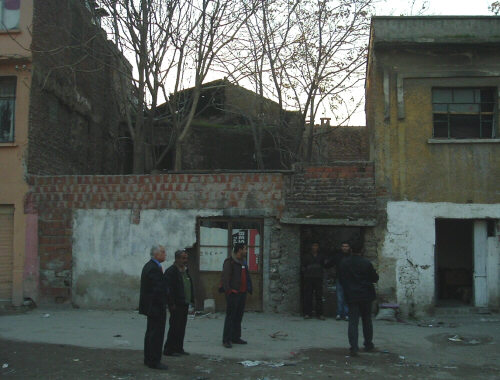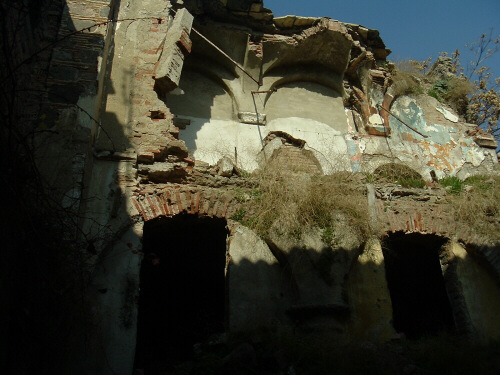 June 07
June 07
The House of the Messiah in Ruins
Photographs by Barry Kapandji
There is a house, or the ruins of one, at 920 Agora Girisi, in the old part of Izmir (formerly Smyrna), Turkey, which believers say was the home of Sabbatai Sevi. Today it looks like a derelict vacant lot, awaiting demolition -- and so it is. But the few faithful ma'aminim (believers) remaining in Turkey have, for the last three centuries, venerated it as a shrine. Documentarians have seen old women lighting candles, and apparent Muslims chanting hymns in Ladino. We may never know if these lingering believers, heirs to the secret sect of crypto-Jews sometimes called the "doenmeh" (traitors), are right -- but they are certainly faithful. (see related article)

A few months ago, I received an email from one of these faithful. "SABBATAI SEVI'S House in IZMIR Being DESTROYED" said the subject header. He'd gotten my address from one of the few scholars who study the Doenmeh, and, in a phone conversation, worriedly told me of the Izmir municipality's plan to raze the house to make way for a park. (The house is not far from the old Roman agora, and Izmir is hoping the old archeological site will attract tourists.) There was not a minute to lose, he said; the house had already been mostly destroyed.
Eventually, my contact with this man, who asked that I refer to him as "Barry Kapandji," a pseudonym, led to an article I wrote in the Forward, eventually titled (not by me) "Shrine of False Messiah in Turkey to be Raised". In the four months between Kapandji's contacting me and the publication of the article, Kapandji had managed to persuade the Izmir municipality to halt the demolition and consider preserving the house. As these images show, much of the demolition has already taken place -- and the future of what's left is uncertain.

Why did it take me so long to write the article? Primarily, I wanted someone to verify the house's authenticity, or at least give me a probability that it was authentic. Kapandji seemed insulted that I doubted his own credibility -- but I wanted more. I did find more, in the guise of Cengiz Sizman, a Harvard-educated Ph.D in Sabbateanism. Sizman couldn't give me absolute proof, but he did provide some convincing evidence: a continuous tradition of veneration, the right archeological details, and some old historical accounts that seemed to indicate that this was, indeed, the messiah's house.










